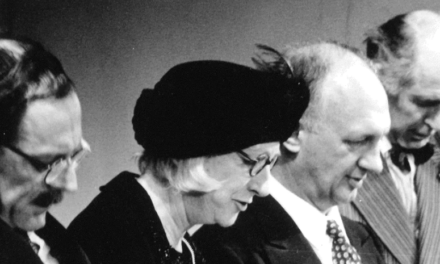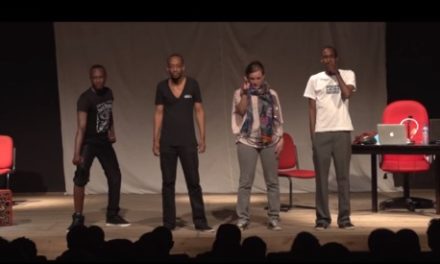Alex Oates’ debut Fringe play traces the journey of 19-year-old Geordie lad Bruce, as he begins dealing cocaine via the illicit online marketplace Silk Road. Under the guise of a coming of age drama, the play – also entitled Silk Road–sets out to explore some of the issues surrounding the online trade in illegal drugs. As well as having the novelty of being the first play funded by Bitcoin, experts confirm that Oates’ depiction of Silk Road is substantially accurate.
In plain terms, the now defunct Silk Road was an international crypto-market – an encrypted, eBay-style marketplace, accessible to anyone with an internet connection, but located beyond the reach of conventional search engines like Google. Silk Road users around the world could anonymously buy and sell illegal drugs, and other black market items, using Bitcoin. Goods sold on this crypto-market were typically dispatched via conventional mail, and sellers were subject to customer feedback, much like on Amazon.
A Battle for Legitimacy
Oates’ depiction of the Silk Road community is quietly positive. The playwright explained that as part of his research, he downloaded Tor – a browser which allows users to access the deep web anonymously–and created an account on Silk Road. His impression was of a nice, welcoming, and helpful group of people. Oates said: “I think because they have such a firm political ideology behind them, they want to create a good impression.”
Given the negative impacts associated with the consumption, trafficking, and dealing of illegal drugs, audiences could be forgiven for feeling skeptical about Oates’ portrayal of ideologically motivated, anonymous drugs traders. But James Martin, a senior criminology lecturer, explained that these conflicting representations are the result of a battle for public legitimacy.
Martin explained that online dealers say that they do this for ideological and political reasons, and that they’re making the drugs trade safer for consumers, dealers, and the general public. But according to Martin, law enforcement agencies like the US Drug Enforcement Administration(DEA) are premised on policies that prohibit drugs, and so have a vested interest in promoting and maintaining negative stereotypes of drug dealers, both online and on the streets.
Experts broadly agree with Oates’ representation: “One of the things people misunderstand about Silk Road is that they think it is purely about drugs,” said Jamie Bartlett, whose new book explores phenomena like Silk Road and the dark web. Bartlett explained that while drugs were central to the site’s modus operandi, its broader, underlying philosophy supports the free market and the use of crypto-technology to guarantee individual liberty.
“Silk Road started out with these grand ideas; this commitment to libertarianism, and to nonviolence,” Martin explained. The site’s founder, Dread Pirate Roberts (allegedly Ross Ulbricht), has spoken publicly in an interview with Forbes, about wanting to instigate a global crypto-anarchist revolution.
“Silk Road had quite a sophisticated and very explicitly articulated vision,” Martin said. As a self-proclaimed haven of libertarianism, Martin explained that Silk Road’s ideology rested on the notion that the war on drugs and the drug prohibition has made the trade a lot more dangerous, and that services like Silk Road are actually a public good.
Market Appeal
In Oates’ play, things start to go wrong for Bruce when the established local dealer–Mr. Shaggy–starts to defend his turf. Shaggy unhesitatingly uses threats, violence, and coercion to manipulate Bruce into a partnership. According to experts, the contrast between the stereotypically aggressive drug dealer on the streets, and the more peaceable, enterprising Silk Road user, is one that holds true in real life.
Martin explained that online drug vendors are unable to compete with each other using the tools of conventional dealers, namely violence, and intimidation. “It’s a buyers market online, and there are thousands and thousands of dealers who all want your business,” Martin said.
So instead, online vendors innovate. “One of the ideas that I explore in my new book, Drugs On The Dark Net, is that as a conventional cocaine dealer you need to maintain a hard-man persona, to deter people from messing with you,” explained Martin. But online, dealers are free to create a public image that is more sensitive and might appeal more to customers.
Martin said that throughout his studies on crypto-markets, he has observed a convergence with the marketing strategies that are typically associated with the conventional economy, like two-for-one gimmicks and holiday specials. He also referred to the emergence of ethical drugs marketing.
The question remains, that if crypto-markets are easily accessible via encrypted browsers like Tor, why aren’t conventional dealers adopting these new methods? Bartlett said his research indicates that online communities tend to attract like-minded people. “If you’re a libertarian tech person who is interested in cryptocurrencies and cryptomarkets, you will find out about sites like Silk Road, and you’re more likely to join them,” he said, labeling the phenomenon a “self-selection bias”.
The Crackdown
At the conclusion of Silk Road (the play), Bruce realizes that he has left an online “paper” trail–bank account details, compromised encryption keys–and that the authorities are converging on him. This ending mirrors key aspects of what is known about the closure of Silk Road. Both incidents can be interpreted as the result of human error.
Martin said that although the closure of Silk Road was very destabilizing initially, it “transformed into an act of creative destruction”. The BBC recently reported that the number of adverts for illegal drugs on the dark web has doubled, less than a year after the FBI seized Silk Road. This supports Martin’s claim that there the site’s closure left a huge market share up for grabs. “New sites are trying to outsell each other … it’s created a really dynamic online space, and the crypto-market trade is bigger now than it’s ever been,” he said.
Despite claims that the Silk Road bust gave “clear notice” that law enforcement agencies have the motivation and resources to arrest illegal users of crypto-markets, experts thought otherwise. According to John Collins–coordinator of the International Drug Policy Project at LSE–the resources required, as well as the legal complications of enforcing laws across jurisdictions, make the probability of enforcement success quite small. “It would really be a case of pushing back the tide,” he said.
Whatever attitude one takes toward drugs, it is obvious that sites like Silk Road challenges stereotypes and raises thought-provoking questions over drugs policy and enforcement. Oates’ intelligent representation of these questions in his play Silk Road offers accessible and engaging insights for Edinburgh Fringe-goers.
This post originally appeared on The Conversation on August 15, 2014 and has been reposted with permission.
This post was written by the author in their personal capacity.The opinions expressed in this article are the author’s own and do not reflect the view of The Theatre Times, their staff or collaborators.
This post was written by Emily Lindsay Brown.
The views expressed here belong to the author and do not necessarily reflect our views and opinions.


















